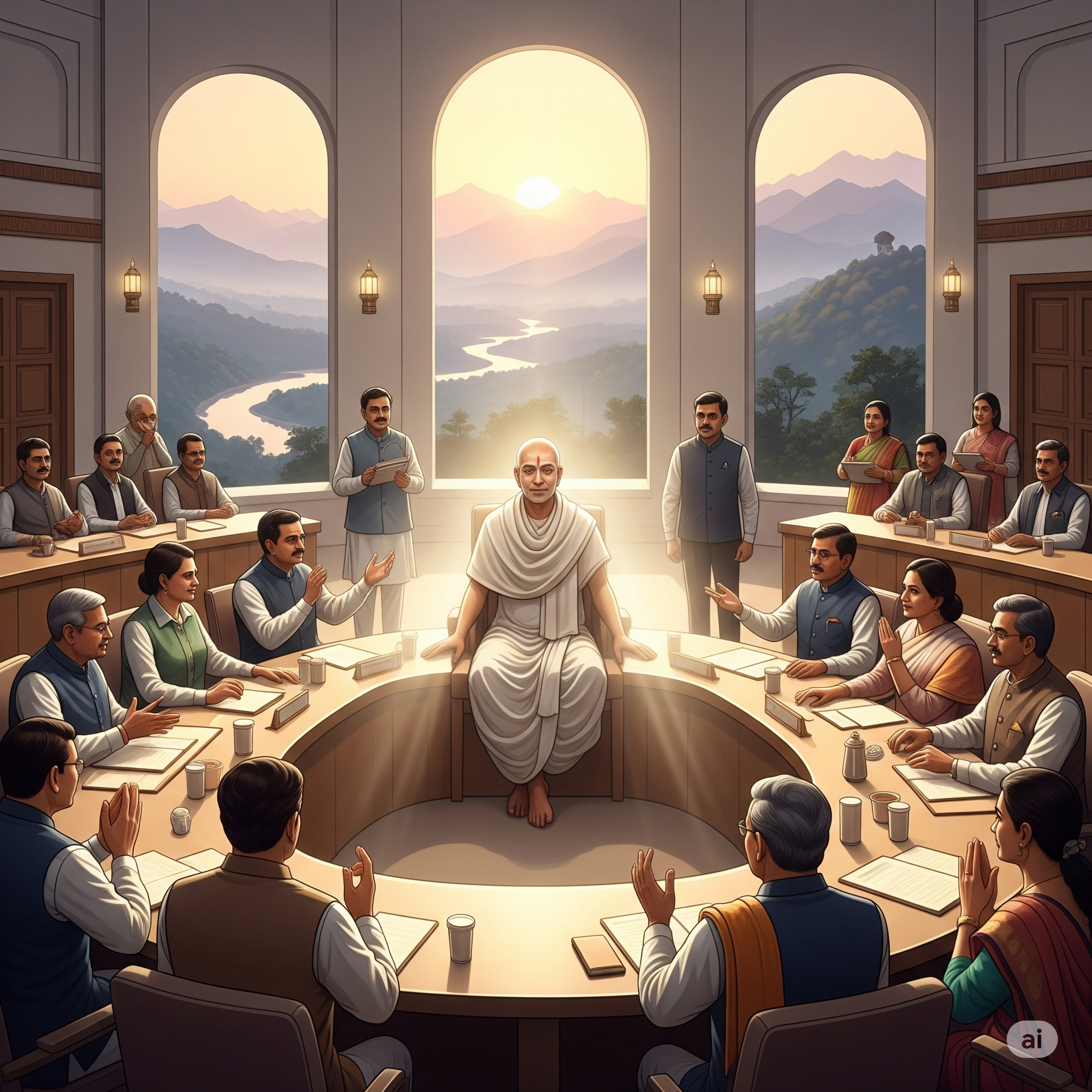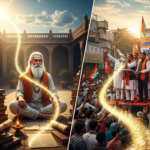
Is There a Place for Enlightenment in India’s Political Landscape?
New Delhi, 2025 — India, the land of Buddha, Vivekananda, and Mahatma Gandhi, has long been a cradle of wisdom, spiritual awakening, and ethical thought. These luminaries shaped global discourses on non-violence, justice, and humanity, leaving behind a legacy of enlightenment that continues to inspire the world. Yet, paradoxically, the nation’s political landscape is often perceived as a realm of corruption, cynicism, and self-serving ambition.
Why is politics, in a land rich with philosophical heritage, still considered a shady pursuit? And is there a way to integrate the principles of enlightenment into India’s political fabric?
The Enlightened Legacy of India
- Buddha’s Teachings on Governance
- The Buddha emphasized compassionate leadership, where rulers act as stewards of public welfare. His teachings on the Middle Path advocate balance, rationality, and ethical decision-making, principles that remain deeply relevant for modern governance.
- Vivekananda’s Vision of Service
- Swami Vivekananda believed that true leadership arises from selflessness and a commitment to societal upliftment. His call for leaders to work for the welfare of the marginalized resonates with the ideals of democracy.
- Gandhi’s Philosophy of Non-Violence and Truth
- Gandhi’s emphasis on Satyagraha (truth force) and Sarvodaya (welfare of all) redefined the purpose of political action. For him, politics was not a means to gain power but a vehicle to serve humanity.
Why Politics in India is Viewed Negatively
- Corruption and Power Dynamics
- Over the years, politics in India has been marred by corruption, vote-bank politics, and identity-based divisions, eroding public trust.
- Data Insight: Transparency International’s Corruption Perception Index 2023 ranked India at 85 out of 180 countries, reflecting ongoing governance challenges.
- Populism Over Principles
- Short-term promises and populist measures often overshadow long-term vision and ethical policymaking. Leaders prioritize electoral victories over structural reforms, perpetuating public skepticism.
- The Disconnect Between Leaders and Citizens
- Many political leaders are perceived as disconnected from the realities of common people, focusing more on personal gain than public welfare.
The Role of Enlightenment in Modern Indian Politics
- Ethics and Governance
- Integrating ethical principles into political decision-making can restore trust and credibility. Leaders inspired by India’s philosophical heritage can emphasize justice, transparency, and compassionate governance.
- Case Study: Gandhi’s leadership during India’s independence movement exemplified how ethical governance can mobilize people for a greater cause.
- Compassionate Leadership
- Enlightened politicians prioritize policies that uplift marginalized communities and foster inclusivity.
- Policy Example: The National Food Security Act (2013), which aims to provide subsidized food grains to millions, reflects the essence of governance for the common good.
- Visionary Planning
- Inspired by Buddha’s Middle Path, enlightened leadership balances economic growth with sustainability, ensuring long-term benefits for society.
- Policy Highlight: India’s commitment to achieving net-zero emissions by 2070 aligns with a vision of sustainable development.
Bridging the Gap: Making Enlightened Leadership a Reality
- Educating Future Leaders
- Leadership programs that emphasize philosophy, ethics, and social responsibility can nurture enlightened politicians. Introducing these values into school and university curricula can create a new generation of principled leaders.
- Strengthening Democratic Institutions
- Transparent and accountable institutions are critical for fostering enlightened governance. Reforms in campaign financing, anti-corruption mechanisms, and judicial independence are essential.
- Empowering Grassroots Leadership
- Local governance bodies like panchayats and municipal councils can serve as platforms for ethical and effective leadership. By empowering grassroots leaders, India can ensure governance that reflects the needs of its people.
- Citizen Engagement and Awareness
- An informed electorate is vital for demanding enlightened leadership. Civic education campaigns and platforms like MyGov can foster dialogue between citizens and policymakers.
Conclusion: A Call for Enlightened Leadership
India’s political landscape is at a crossroads. While challenges like corruption and short-termism persist, the nation’s rich philosophical heritage offers a guiding light. By embracing the principles of truth, justice, and compassion, Indian politics can align itself with the ideals of enlightenment that have shaped its past.
The time has come for leaders to view politics not as a pursuit of power but as a platform for service. In doing so, they can honor the legacies of Buddha, Vivekananda, and Gandhi, creating a future where governance is a beacon of hope, integrity, and progress.


